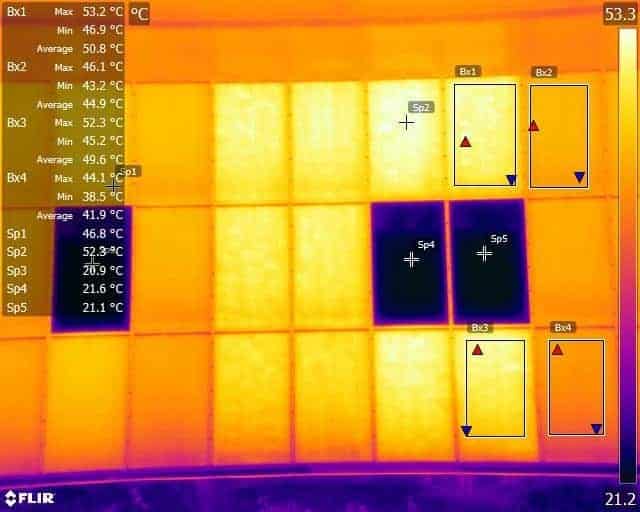
Domestic PV Solar Panels at a Time of High Energy Prices
It can’t have escaped anyone’s notice that energy prices are soaring and predicted to rise even further later in the year. So, if you’re lucky enough to already have solar panels powering your home, there’s never been a better time to check that they’re working at peak efficiency. You’ll want to be sure that you’re squeezing the most out of your investment as we head into the summer months.
Luckily, inspecting your panels to identify any potential faults or problems couldn’t be any easier with one of our state-of-the-art drones. Equipped with advanced thermal cameras, one quick flight is usually all it takes to make sure that everything is working well, and you are reaping the benefits of your solar panel installation.
After the flight data has been processed back at our offices, you’ll receive an easy-to-understand health check report to you can see at a glance if you have any maternity issues that need addressing. There’s no need to call in a repair company if there are no problems found – you can simply relax and let the sun shine down and save you money.
Drone thermal inspections are quick and simple in the hands of our qualified and insured pilots. There’s no need to disrupt your day to get a comprehensive solar panel health check.
- Solar Panel Fault Identification
- Solar Cell Errors
- Solar Panel Surface Damage or Debris
- Solar PV String Faults
- Developing Cell Issues
- Solar Panel Shadowing
Qualified Drone Thermographers
Owning a drone and a thermal camera is only the start of being able to conduct solar panel inspections and provide meaningful data. Our thermographers are qualified to Level 2 Thermography standards so knowledgeable in the conditions and relevant techniques required to collect accurate data. Without this understanding, you’re very likely to simply be producing coloured pictures with no real meaning behind them. Our experience and qualifications mean that the information that we provide you adheres to recognised standards BS EN ISO 62446 & ISO 18436.
#DomesticSolarPanelInspections #HomeSolarPanelInspections #Housesolarpanelinspection
https://www.dronemediaimaging.co.uk/home-installed-solar-pv-panels/
Comments